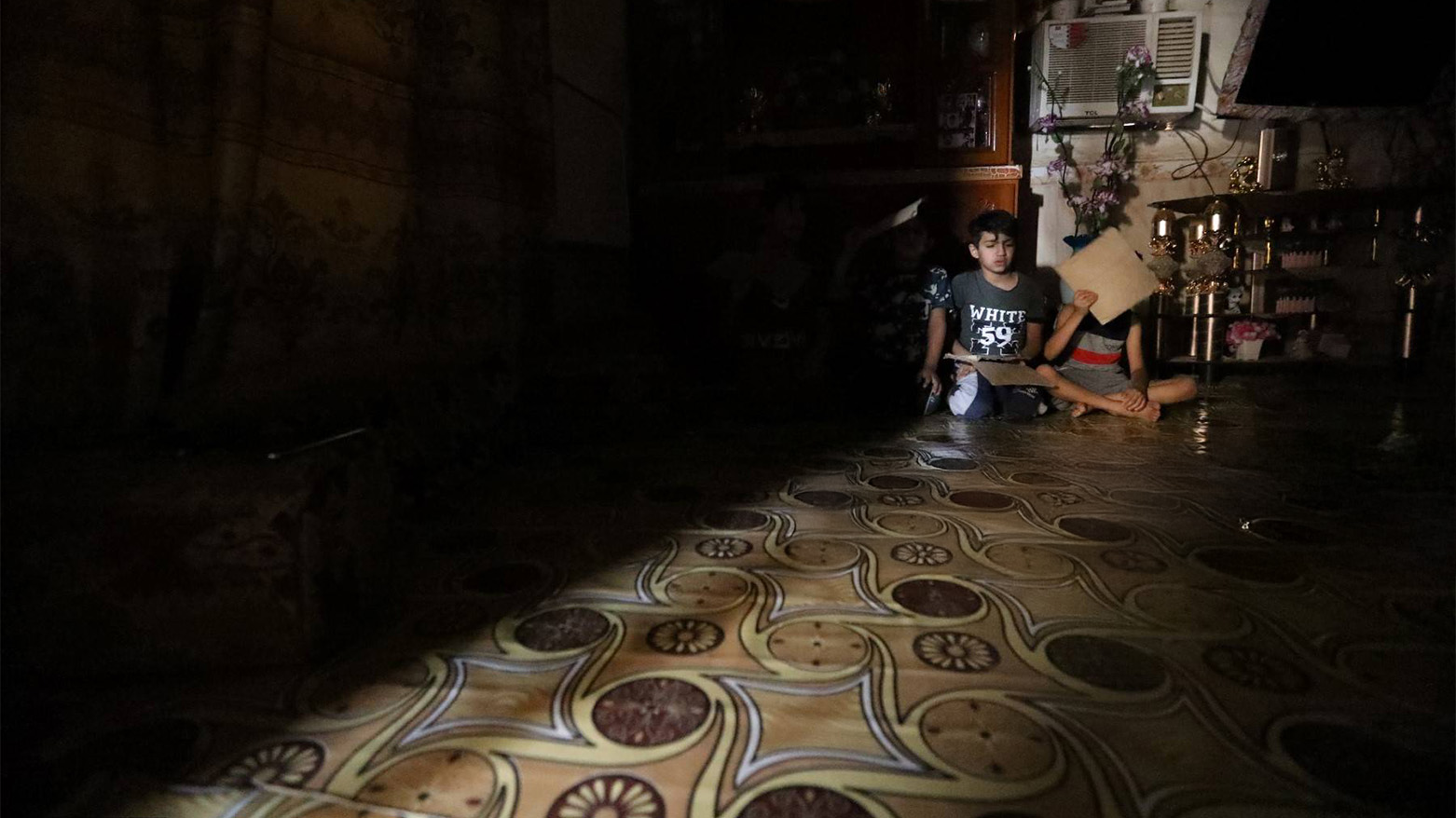‘Daily Ordeal’: Nasiriyah Boils in Extreme Heat with Near-Total Power Collapse
Nasiriyah residents endure a daily ordeal with temperatures over 52°C and less than 30 minutes of fragmented electricity. Facing a collapsed grid for 20+ years, they demand urgent government action, citing threats to their health and a dignified life.

ERBIL (Kurdistan24) — As a punishing summer heatwave sends temperatures soaring past 52 degrees Celsius, the residents of Nasiriyah city are grappling with a daily and dangerous ordeal, enduring a near-total collapse of the state power grid that provides, at best, a fragmented half-hour of electricity per day and has left them demanding urgent action from a government they say has failed them for over two decades.
The chronic electricity crisis in the Dhi Qar provincial capital has reached a critical point, transforming daily life into a struggle for survival. According to residents, the electricity supplied to the city, even in the best of circumstances, amounts to a maximum of two hours per day. However, this period is not continuous. It is plagued by frequent interruptions, sometimes cutting out three or four times within that short window, meaning the total usable electricity a citizen actually receives often amounts to no more than half an hour.
This severe lack of power has a direct and devastating impact on the population. One resident, speaking to Kurdistan24, described the immense difficulty people face in cooling their homes or operating essential electrical appliances amid the extreme temperatures. The most vulnerable, particularly children and the elderly, suffer from extreme exhaustion with a lack of any viable alternatives provided by the state.
In this vacuum, many families are forced to rely on private generators. This solution, however, brings its own set of hardships, imposing significant additional financial burdens on households that are often already struggling. Furthermore, these private generators are themselves unreliable, subject to frequent breakdowns and sudden interruptions in service, compounding the residents' frustration.
The suffering of Nasiriyah's residents is not confined to the suffocating heat inside their homes. Another resident stated that the city lacks adequate recreational areas and public parks where families could find some respite. This absence of public spaces forces some to seek refuge in areas like "Saddat al-Bida'a," but even this potential escape offers little relief, as the area is also suffering from drought and a lack of water.
A deep sense of frustration permeates the city, fueled by the recurrence of this crisis for more than 20 years. Residents expressed their anger that the problem only worsens each year, despite the fact that billions of dinars have reportedly been spent on the electricity sector without any fundamental solutions or realistic plans to improve the service being implemented.
With regional and national elections often on the horizon, the citizens of Nasiriyah are directing pointed messages to both the central government in Baghdad and their elected members of parliament. They are urging them to finally address the electricity issue with the seriousness it deserves and to provide the most basic of services. There is a palpable sense of weariness with cyclical campaign promises that fail to translate into any tangible results on the ground.
For the people of Nasiriyah, this is no longer just a technical issue of infrastructure. They assert that the electricity crisis has become a daily ordeal that directly threatens their health and their right to a dignified life, preventing them from living normally. Their demand is clear and urgent: they are calling for immediate action and real, lasting solutions, not more postponed promises.
